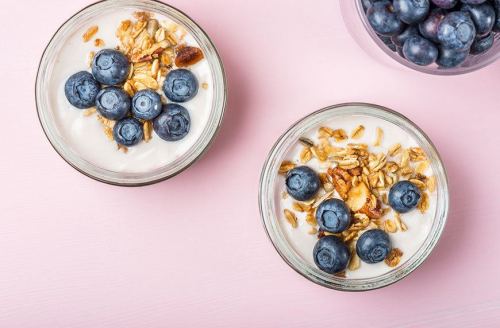For the majority of my life, I’ve been a ‘no talkie before coffee’ kind of gal. I also always make sure to give my coffee ample time to kick in before starting work, as my focus isn’t as sharp without a solid dose of caffeine streaming through my system.
Experts in This Article
board-certified neurologist based in Miami, FL
While I’m well aware of the short-term benefits of coffee for my noggin, it turns out that I’ve been snoozing on a special neurologist-approved ingredient that could amplify the drink’s brain-boosting and protective potential even further: cinnamon. Here’s why coffee and cinnamon are the perfect pairing for powering our mornings and boosting your brain health and cognitive function over time.
The benefits of coffee for brain health
Before we cover the brain benefits of enjoying cinnamon with coffee, let’s first recap how and why java is so powerful on its own. According to Shaheen Lakhan, MD, a board-certified neurologist based in Miami, FL, coffee is more than just a morning pick-me-up.
“I can confidently say that coffee offers several significant benefits for brain health. Caffeine, the primary active compound in coffee, acts as a stimulant that enhances alertness, improves concentration, and can boost short-term memory,” he explains. Since coffee is a solid source of antioxidants1, it may also help protect brain cells from oxidative stress, which may help reduce the risk of degenerative brain diseases, such as Alzheimer’s and Parkinson’s, Dr. Lakhan says.
“Some studies have also suggested that regular coffee consumption may have brain-protective effects and could potentially lower the risk of stroke2,” Dr. Lakhan continues. Although more research is needed around coffee’s potential to be a powerful dietary component to delay Alzheimer’s disease onset, Dr. Lankhan says that moderate coffee intake “could be a simple yet effective way to invest in your long-term cognitive health.”
How cinnamon with coffee can help boost brain health
As powerful as coffee is on its own for brain health and cognition, adding a few dashes of cinnamon can take its benefits (not to mention the taste) to the next level. “Cinnamon contains compounds that may help regulate blood sugar levels, which is crucial for maintaining stable cognitive function throughout the day. It’s also rich in antioxidants and has anti-inflammatory properties that could contribute to long-term brain health,” Dr. Lakhan explains.
According to a 2024 review3 of 40 studies published in Nutritional Neuroscience, cinnamon can significantly improve cognitive function—namely learning and memory—plus help prevent and reduce cognitive impairments. Earlier research in mice4 “suggests that cinnamon could potentially help in preventing or slowing the progression of neurodegenerative diseases [including Parkinson’s],” Dr. Lakhan adds, though more research in humans is needed to make conclusive claims.
Still, Dr. Lakhan advocates for cinnamon-spiced coffee as a safe and simple way to fortify your brain’s defenses as the days and years pass by. “It’s not just about taste; it’s about giving your neurons that extra layer of protection,” he says.
More ways to amplify coffee’s brain-boosting potential
Cinnamon with coffee is an easy hack to enhance the cognitive and brain health benefits of your brew, both daily and in the long run. (ICYMI, this dynamic duo is also gastro-approved to support your gut health on the regular.) To take things a step further, heed the following tips to more effectively nourish your noggin one cup at a time.
1. Pass on the artificial sweeteners
As you spice up your coffee with cinnamon, you might also want to subtract artificial sweeteners to double down on the protective effects. “Some artificial sweeteners, such as aspartame, sucralose, and saccharin, have been associated with negative effects on gut bacteria, which could indirectly impact brain health through the gut-brain axis,” Dr. Lakhan warns.
2. Rethink your creamer
While you’re rethinking your coffee intake for the sake of your brain, it may also be a good idea to shelve flavored creamers. “Many contain high amounts of added sugars and unhealthy fats, which can contribute to inflammation and potentially increase the risk of cognitive decline over time,” he says.
3. Keep your coffee as natural as possible
If cinnamon on its own isn’t enough to satisfy your palate, Dr. Lakhan advises opting for healthier alternatives to the above to zhuzh up your coffee. “For those who prefer their coffee with milk, opting for unsweetened plant-based milk or small amounts of regular milk would be a healthier choice than heavily sweetened or artificially flavored options,” he explains.
As far as sweeteners go, he suggests using small amounts of natural sweeteners or gradually reducing them altogether. (The good news is that once you stop or limit your intake of added sugars, your taste buds *and* your cravings can adjust within as little as six days5, thus enhancing the palatability of your cinnamon-spiced coffee sans the sweet stuff.)
“Your brain craves simplicity. A clean cup of coffee is like a clear path for your neurons to fire on all cylinders,” Dr. Lakhan concludes.
—reviewed by Smita Holden, MD
Liang N, Kitts DD. Antioxidant property of coffee components: assessment of methods that define mechanisms of action. Molecules. 2014 Nov 19;19(11):19180-208. doi: 10.3390/molecules191119180. PMID: 25415479; PMCID: PMC6270823.
↩︎Shao C, Tang H, Wang X, He J. Coffee Consumption and Stroke Risk: Evidence from a Systematic Review and Meta-Analysis of more than 2.4 Million Men and Women. J Stroke Cerebrovasc Dis. 2021 Jan;30(1):105452. doi: 10.1016/j.jstrokecerebrovasdis.2020.105452. Epub 2020 Nov 11. PMID: 33188952.
↩︎Nakhaee S, Kooshki A, Hormozi A, Akbari A, Mehrpour O, Farrokhfall K. Cinnamon and cognitive function: a systematic review of preclinical and clinical studies. Nutr Neurosci. 2024 Feb;27(2):132-146. doi: 10.1080/1028415X.2023.2166436. Epub 2023 Jan 18. PMID: 36652384.
↩︎Khasnavis S, Pahan K. Cinnamon treatment upregulates neuroprotective proteins Parkin and DJ-1 and protects dopaminergic neurons in a mouse model of Parkinson’s disease. J Neuroimmune Pharmacol. 2014 Sep;9(4):569-81. doi: 10.1007/s11481-014-9552-2. Epub 2014 Jun 20. PMID: 24946862; PMCID: PMC4167597.
↩︎Bartolotto C. Does Consuming Sugar and Artificial Sweeteners Change Taste Preferences? Perm J. 2015 Summer;19(3):81-4. doi: 10.7812/TPP/14-229. PMID: 26176574; PMCID: PMC4500487.
↩︎
Sign Up for Our Daily Newsletter
Get all the latest in wellness, trends, food, fitness, beauty, and more delivered right to your inbox.
Got it, you've been added to our email list.











